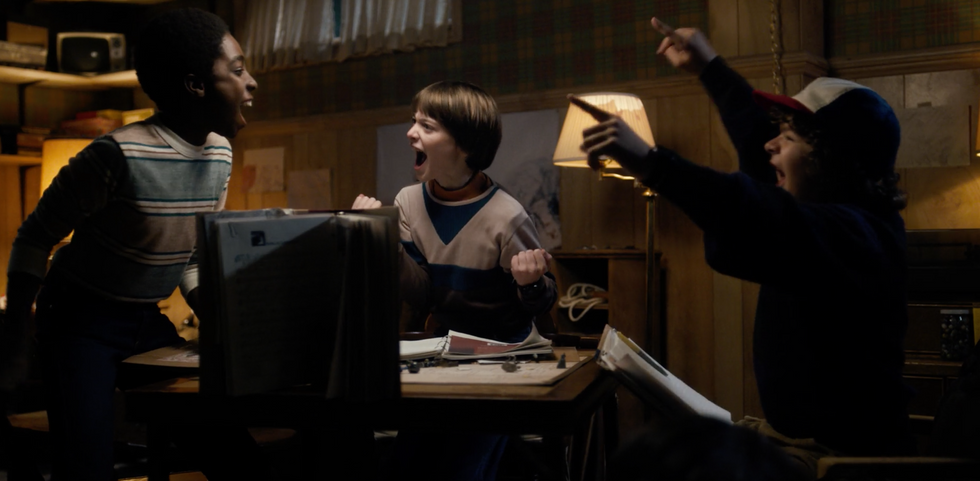Unless you have been living under a rock the past forty-four years, you've probably heard of the tabletop role-playing game, Dungeons & Dragons (commonly referred to as D&D). References to the game are scattered across pop culture throughout the world, most predominantly in the Netflix original, "Stranger Things." The show is a pretty standard depiction of the game. Four nerds in a basement surrounded by empty pizza boxes listening to their Dungeon Master paint the scene and then proceeding to scream at the top of their lungs for their companion to cast "Fireball" at whatever the heck a "Demogorgon" is.
To anyone outside the community, they could've been shouting in Greek. But to me, I couldn't help but smile at this all too familiar situation. I connected with the lead storyteller Mike and his smirk he had hidden behind the large folder propped in front of him. Because to me, seeing my players react to the tapestry of words I've woven for them is the greatest thrill in the world. I'm sure any Dungeon Master that might be reading this would agree with me.
One of my favorite aspects of the game is how much freedom you have. The Dungeon Master (your world builder, your referee, and your storyteller) crafts the scene, but it is up to the players to decide what to do. For example, a Dungeon Master tells you there is a giant cyclops blocking the road. Do you start attacking it in hopes of a kill? Or do you decided to take the pacifist route and attempt to talk to the monster and convince him to move? Perhaps you come up with a completely different way of solving this problem? All are different, all could work, and all make the game exciting. A Dungeon Master can think they have every solution to the problem, but once it's out on the table, anything is possible.
My favorite example of how my players surprised me is when the adventuring party received a call to slay a "beast" ravaging a farmer's crops for a large reward. After a scavenger hunt filled with puzzles, they came across the greenhouse where they saw the monster trapped inside. Once they entered, they discovered this "beast" the farmer had been raving about was actually a baby bear trying to protect his little sister from his wrath. In my head, I figured there were two options: bring the cubs to the farmer and collect the reward, or set the cubs free but give up the reward.
One of my players, David, suggested a third option: kill this cruel, cowardly farmer. The rest of the party agreed.
I laughed, said "Alright! Make your way back to the farmhouse!" and as they gathered their forces to head to the barn, I quickly came up with a character sheet for the farmer. In the sixty seconds, it took for them to make it back to the farmhouse, I decided the farmer was a not too powerful transmutation wizard with 100 health points.
D&D teaches you to think outside the box. David saw the two options I had foreseen but decided on a third one that gave them the best outcome. In the end, they killed the villainous farmer, saved the cubs, and got the reward. In a spur of the moment idea to emphasize how cruel this man was, I had the reward be a chest of half-rotted apples. My players were not happy. So, they robbed his house completely bare and stole his dog. And hey, a golden retriever is a reward all in itself.
D&D fosters creative thinking and problem-solving skills. It enables you to tell any story you want to tell. They give you the rules to play and say, "Have at it." It allows for stomach clenching goofs and heart-wrenching tragedies within the same session. It is the most fun I've ever had as both a writer and a goofball.
If you pick up this hobby, I guarantee you won't be able to put it down.
















